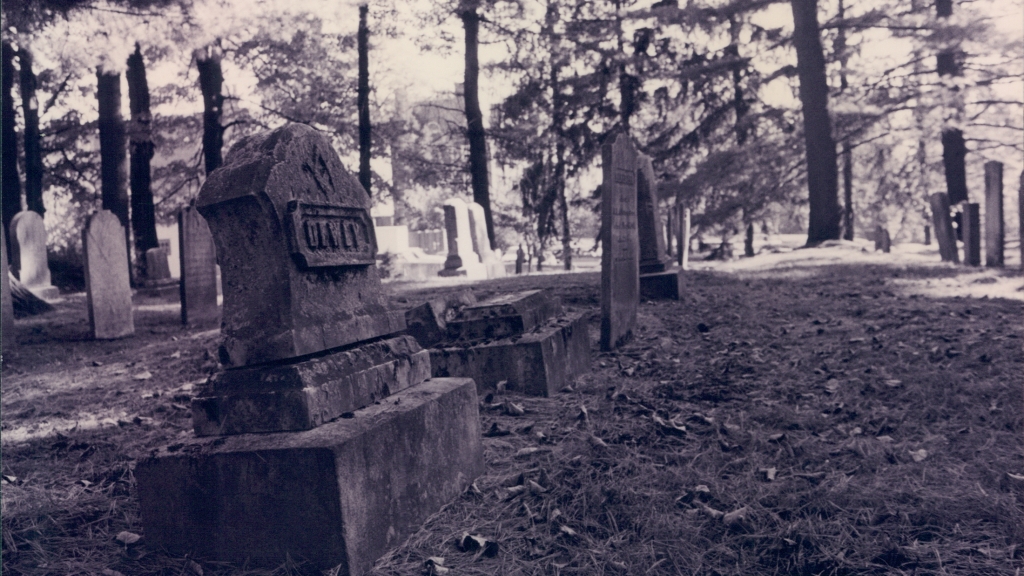A collaboration between Dartmouth, Hanover High School, and the town of Hanover will take local students on a four-day exploration of the historic Dartmouth Cemetery this week.
Along the way, the group of six Hanover High students will get a taste of campus life, dive into the archives at Rauner Special Collections Library, and hear from Dartmouth, town, and regional experts on topics ranging from gravestone symbolism to palliative care.
The Old Dartmouth Cemetery course, organized by the Office of Government and Community Relations, is among several dozen "March Intensives" on offer at Hanover High this month. The ungraded courses use authentic learning experiences to promote a love of learning and build relationships among students, staff, and community members.
Heather Drinan, director of government relations, says student feedback helped shape the multidisciplinary class, which was also offered in 2022.
"Green burials and home funerals seem to be of real interest, so we've made that a longer segment this time," says Drinan, who organized the partnership and will lead a session on living funerals.
Living funerals—gatherings held to honor someone who is nearing death—can be a chance for the person to celebrate their life and say goodbye to friends and family.
Drinan says the cemetery course reflects the spirit of President Sian Leah Beilock's Dartmouth Dialogues initiative, helping young people talk about potentially uncomfortable subjects "in a facilitated way that makes them more accessible."
"Hopefully, they are going to go home and follow up with discussions around the dinner table."
President Beilock will also visit with the students, who will be on campus for four days, starting on Tuesday.
During the week, the class will also hear from Ilana Grallert, a processing specialist at Rauner and resident expert on the Hanover-owned cemetery and frequent tour leader there. They will help with spring cleaning in the graveyard, which is maintained by the town and the Dartmouth Cemetery Conservation Group, and make some art at the Hood Museum of Art. And the students will research the lives of people who are buried in the 12-acre cemetery along West Wheelock Street.
The 18th- and early 19th-century burial ground includes the gravesites of eight Dartmouth presidents and hundreds of other people who lived on or near campus.
Charles Whang, who will lead a session on palliative care, says that like the students' research, his field involves "truly trying to understand people."
"When you understand who someone is, you can help guide them through the complexities of dealing with serious illness," says Whang, an assistant professor of medicine at Geisel School of Medicine. Palliative medicine does that by getting to know patients, "so that we can help make shared decisions that will get them to their goals."
Whang says he wishes school had taught him how to think about life in a more philosophical way, and he appreciates the chance to talk about palliative care outside of a medical setting.
"Being able to talk about topics like life and death and illness is so helpful."
